I am occasionally asked to review books for newspapers and magazines. My years spent in Asia, most notably in Hong Kong, mainland China and Cambodia, mean most commissions — but not all — are for books about or set in the region. A sample selection of my reviews is included here.
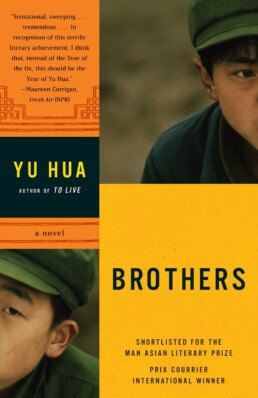
Brothers
Author: Yu HuaPublisher: Pan MacmillanPublished: 2009Genre: Fiction
PUBLISHED AS TWO books in China, in 2005 and 2006, the bestseller Brothers caused an almighty brouhaha in that country’s literary circles. More nationalistic critics have complained that Yu Hua’s tragicomic satire is crass and sensational, and that his penchant for grotesque caricatures, Rabelaisian humour and crude populism portray China in a dark light. Thankfully, it is difficult to argue with them.
The two parts of Yu’s caustic and surreal tale have been packaged together into one epic format for its English-language release. The result is a laugh-out-loud romp through recent Chinese decades and an open-handed swipe at the moral schizophrenia thrown into society by the destructive Cultural Revolution of the 1960s — and now exacerbated by today’s frenzied consumer revolution.
Unflinching in its brutality and holding up a mirror (of the distorting type found at a fairground, admittedly) to a country undergoing profound and sometimes painful change, Brothers is also gloriously scandalous, the tale beginning — perhaps suitably for a novel that has created such a stink — in a toilet.
Li Guang, the “premier tycoon” of Liu Town, flops his soft backside down onto its gold-plated seat, there to recall a less salubrious public convenience: his old neighbourhood’s latrine. At the age of 14, devilish “Baldy” Li, so nicknamed on account of his cropped hair as a child, was caught peeping at women’s naked backsides at that latrine.
Li was, he comes to discover, unknowingly following in the footsteps of his late father, who slipped while attempting the same sneaky manoeuvre on the day of Li’s birth and drowned in a trench of human excrement.
The only coffin the boys’ mother can afford is small, so the distraught family must listen as workers use bricks to shatter the corpse’s kneecaps to fit the body inside
Li, while going through his morning motions, also recalls how, just a few years after his father’s messy demise, his shamed mother married Song Fanping, a kindly widower and the father of thoughtful youngster Song Gang. The two boys became inseparable despite their conflicting personalities.
Like the two conveniences, Yu uses the step-siblings to represent two antithetical faces of Chinese society — one humble and traditional, the other brash and ostentatious.
Brothers chronicles the contrasting lives of Li and Song over 40 unruly years. Along the way, Yu pushes all the right buttons to coax visceral reactions from his readers. This is most notable in the first of Brothers’ two sections, when having painted Song Fanping as a saintly model of integrity and self-sacrifice, the author deliberately draws out his bloody and horrifying murder at the hands of red guards.
And, when things go bad in Yu’s China … well, they can always get worse: the only coffin the boys’ mother can afford is small, so the distraught family must listen as workers use bricks to shatter the corpse’s kneecaps to fit the body inside.
Yu ratchets up action in part two, during which Li amasses a fortune in scrap before expanding into clothing, restaurants and anything else where an easy buck can be made, before — “like a B-52 bomber, carpet-bombing the formerly beautiful town” — he demolishes the old Liu township for redevelopment. Brother Song, meanwhile, is less fortunate financially, scrambling to maintain his dignity in a series of demeaning labours.
Despite enjoying all the trappings of China’s often brutish nouveau riche (a white BMW for daytime use; a black Mercedes for nights), mogul Li occasionally longs for the simpler days of his youth, complaining: “Nowadays the world is filled with women’s bare butts shaking hither and thither.”
He even stages a beauty pageant for virgins. Though it attracts 3,000 entrants, he bemoans how difficult it is to find “purity” in modern China. An itinerant tradesman known as “Wandering” Zhou, meanwhile, does brisk business selling artificial hymens.
Though decent folk do exist in Yu’s dystopian vision of the world’s new superpower, those with the drive or cruelty to succeed in a dog-eat-dog world invariably beat them down. The suggestion is that while the extremes of China’s Cultural Revolution were horrific, the unprincipled greed of the country’s present day might be every bit as perverse in its excesses. ◉
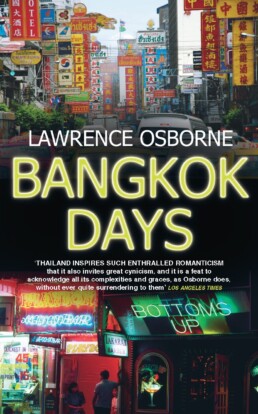
Bangkok Days: A Sojourn in the Capital of Pleasure
Author: Lawrence OsbornePublisher: Harvill SeckerPublished: 2009Genre: Travel, Memoir
THOSE IN THRALL to the steamy Thai capital will warm to Bangkok Days. The memoir’s nomadic British author, who first entered the city to exploit cheap dentistry, and later returned as “a man on the lam who had no objective in his day-to-day life but an inquisitive loitering”, has penned a bittersweet study of a metropolis that attracts more than its fair share of lost souls.
Bangkok, Lawrence Osborne says, is “where some people go when they feel that they can no longer be loved”.
The human strays that Osborne writes about are not Thai. They are the legion of middle-aged and older men from the West that, the author believes, are attracted by Bangkok’s “culture of complete physicality … precisely because they can never understand it”.
Some are adrift and perhaps disappointed in life, others are lonely and possibly broken, and all are hoping for personal reinvention amid Bangkok’s heady mix of ancient Buddhist mores, sexual tolerance and go-getting modern ways. The Thai city, Osborne suggests, is an existential bolthole for the planet’s doomed and damned.
The loose-knit roll call of outcasts populating Bangkok Days is what makes Osborne’s sixth book such a gratifying read. Most notable is lascivious McGinnis, a tall, willowy and “dashingly sinister” English aristocrat with a face “like that of a pleasant hoodlum who has just shot down a kite”.
McGinnis’s bar-crawling partner in crime Lionel was once a high-flying journalist now resigned to reviewing spas for European travel magazines. McGinnis describes Lionel as “a wonderful pervert. He’s French.”
Farlo, meanwhile, is a gutter-mouthed Scot who prowls tourist haunts, stalking potential customers for his hunting lodge in landmine-riddled rural Cambodia. Farlo only snags a couple of punters each year, and he takes them out shooting deer with former Khmer Rouge soldiers.
Retired Australian bank manager Dennis is tight-lipped about his former life. His wife has passed away and now he has a penchant for watercolour painting and Viagra. He is “a man who scanned your sentences as if he was reading them on a moving tickertape, like financial data”.
The tragicomic scenarios that members of Osborne’s cast occasionally find themselves in bolster Bangkok Days’ dreamlike atmosphere, and the writer mercifully downplays the sleaze for which the Thai capital is notorious
Each is pathetic but likeable in his own way, and all are “not so much swimming their way through life as drowning with a show of bravado”. A more bizarre fraternity of characters could not be found even in JG Ballard’s most surreal imaginings, and, though Osborne insists all are real people with their names changed for the sake of privacy, Bangkok Days frequently reads more like fiction than reporting, the author more of a romantic and fly-by-night raconteur than a strict documentarian.
The tragicomic scenarios that members of Osborne’s cast occasionally find themselves in bolster Bangkok Days’ dreamlike atmosphere, and the writer — unlike so many others with less restraint — mercifully downplays the sleaze for which the Thai capital is notorious.
During a bout of sickness and a hospital stay, Osborne and a German patient wander off to a gogo bar with their IV drips in tow. Dining at the No Hands Restaurant, where waitresses hand-feed Western customers like oversized pink babies, is recalled with faint relish. Towards Bangkok Days’ close, Osborne follows a kathoey to the murky Chao Phraya river, where she releases a catfish in order to gain karmic merit. The parallel with the Western male seeking rebirth in this most unfathomable of destinations is clear.
And all the while Osborne’s recollections shine with affection for his beloved Bangkok and its easygoing ways, the writer no doubt agreeing with Somerset Maugham’s 1925 observation about the Southeast Asian city: “It makes you laugh with delight to think that anything so fantastic could exist on this sombre earth.” ◉
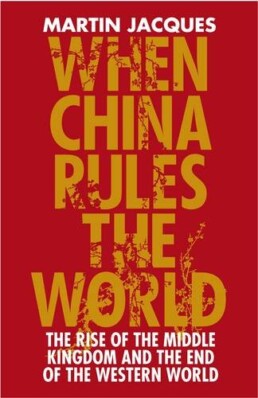
When China Rules the World — The Rise of the Middle Kingdom and the End of the Western World
Author: Martin JacquesPublisher: Allen LanePublished: 2009Genre: Non-Fiction
THE LESS-THAN-SUBTLE title of this thought-provoking book almost guarantees it will be read. Some will be drawn to its pages because the idea of China ruling the world — and the United States losing its global supremacy — is what they want to hear. Others will be attracted because the book spells out what they fear (we all secretly enjoy a good horror story at times). Cleverly, Martin Jacques has both bases covered.
The central premise to Jacques’ 550-page warning-red tome is that China’s rise is assured and the Western world, which has been top dog for more than two centuries, should be worried sick. The British journalist and author argues that the West’s conviction that all developing nations aspire to one universal idea of modernity, and that Western civilisation (popular representation, rule of law, free markets, etc) reveals human achievement at its most admirable, is inherently flawed or outdated.
Jacques also argues that the West is too complacent about China’s ascent, its politicians, academics and tycoons believing that if they do not rattle its cage too aggressively, and continue to buy its cheap consumer goods, the Eastern giant will turn out to be friendly after all, one day becoming a modern (read Western-style) democracy at the geopolitical top table.
China is unlikely to follow that course, Jacques insists, but will change the nature of the world in profound ways — politically, economically and, most significantly, culturally. “There is still a widespread view in the West that China will eventually conform, by a process of natural and inevitable development, to the Western paradigm,” he writes. “This is wishful thinking.”
China’s global leadership will result in a “cultural and racial reordering of the world in the Chinese image”
Martin Jacques
Jacques goes further, insisting that China could not meet the Western concept of a modern nation (and the writer includes Japan, which modernised along Western lines while retaining its Japanese-ness, in that camp) even if it tried. China is “too different”, Jacques believes. Its “genetic structure” as a “civilisation state” defined by the extent of cultural influence, rather than as a “nation-state” demarcated by physical borders, is too entrenched, and global economic realignment could result in China’s fusion of autocracy and capitalism becoming the preferred template for other developing nations.
China’s continental size, the re-emergence Confucianism (if subverted for the times), its historical treatment of neighbours as tributary states required to pay cultural obeisance, and China’s long and continuous history as a polity all add weight to Jacques’ case. “As [countries] become hegemonic powers, as China will,” he writes, “they seek to change the world in the light of their own values and priorities.”
China’s global leadership, Jacques adds, will result in a “cultural and racial reordering of the world in the Chinese image”.
The writer suggests, in fact, that the West might be too politically correct to broach the taboo but important subject of Chinese racism and how it might dictate China’s use of coming might. The Chinese, he opines while sensibly avoiding any talk of a new “yellow peril”, have historically considered themselves superior to other races.
Jacques writes that in ancient China “those who did not follow Chinese ways were considered as barbarians … [who] were typically divided into two categories: ‘raw barbarians’ (shengfan), who were seen as savage and resistant, and ‘cooked barbarians’ (shufan), who were regarded as tame and submissive”.
For the West, at least, this is sobering stuff, but one also cannot help but suspect that the writer might be cherrypicking when making his case. As editor of the Communist Party of Great Britain’s Marxism Today journal from 1977 to 1991, Jacques has long argued that the Western system might not be the ultimate. Could he, in fact, be the one indulging in wishful thinking? ◉
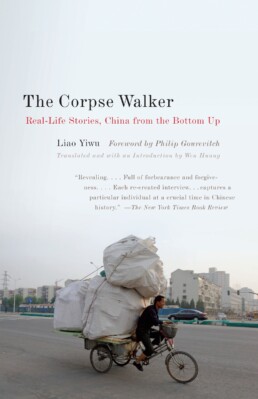
The Corpse Walker: Real-Life Stories, China from the Bottom Up
Author: Liao YiwuPublisher: Pantheon BooksPublished: 2008Genre: Non-Fiction
WITH THE SUBTITLE “Real Life Stories, China From the Bottom Up”, The Corpse Walker is a compilation of 27 oral histories, each as a chapter that can be read independently.
When approached as a whole, the firsthand tales of the misfits, outcasts, drifters and renegades that author Liao Yiwu has brought together paint a picture of country that is world away from the economic powerhouse of Starbucks coffee shops and spacewalking taikonauts that we have come to know.
The China of The Corpse Walker is still steeped in superstition, poverty, casual brutality and desperation.
To bring the human complexity of the world’s most populous nation to light, the compilation of personal stories is a device that has been used successfully before, notably by Beijing-based journalists Zhang Lijia and Calum Macleod. Their China Remembers was published in 1999 to coincide with the 50th anniversary of the formation of the People’s Republic, and to demonstrate how half a decade of communist rule had impacted upon individual lives.
China Remembers incorporated 33 character-led chapters. looking at China’s first post-liberation renminbi billionaire, a cadre from a model work unit, and Cui Jian, the godfather of Chinese rock music, among others. Zhang and Macleod effectively ghostwrote the poignant first-person narratives after face-to-face interviews.
Liao, in contrast, presents his subjects’ views via the no-nonsense, question-and-answer format. The result is less crafted. It is a warts-and-all document without excessive sympathy, but with empathy for characters featured. Liao himself, after all, exists on the fringes of mainstream society, and his anti-authoritarian credentials are impeccable: the author’s distribution of his 1989-inspired poem Massacre saw him jailed for four years, and he currently lives as a street musician somewhere in rural Yunnan province.
Whereas China Remembers tells of folk who played (are still playing, in some cases) active roles in China’s cultural, economic and political development, The Corpse Walker’s unsung cast invariably inhabits small towns and anonymous villages, most notably in the vast provinces of Sichuan and Yunnan. Glitzy metropolises like Beijing, even second-tier cities like Dalian and Kunming, are avoided. And this is what makes The Corpse Walker such an eye-opening read.
Instances of cannibalism during famine in the late 1950s and early ’60s in China have been well documented, but could it really be true that “booby traps, which were used for wolves, were employed to capture kids” from neighbouring villages?
Interviewed by Liao between 1990 and 2003, the grave robber, the blind erhu player, the safe cracker, the public-restroom manager, even the delusional farmer who has declared himself China’s new emperor (interviewed while “his majesty”, as the guards called him, was incarcerated in a maximum security prison) have tales that are outrageous. It is extremely unlikely that the stories Liao has unearthed would ever be heard over a latte in Shanghai.
Instances of cannibalism during famine in the late 1950s and early ’60s in China have been well documented, but could it really be true that “booby traps, which were used for wolves, were employed to capture kids” from neighbouring villages? Could a village chief really have severed the tongues of his human enemies on the direction of his feng shui master, the organs to be diced, dried in the sun and ground into a powder for use in a remedy to treat a dog bite?
Then there is the desensitised and imprisoned human trafficker who kidnapped young women to trade in male-dominated northwestern provinces (“If they believed in my crap and ended up getting sold, it served them right”). And the leper whose sick wife was burned alive by a mob of villagers who insisted the spirit of an evil dragon had possessed her. The new widower went into debt to throw a banquet in the murderers’ honour.
Despite the outlandishness of the tales and the brutality that Liao learns of, the author generally approaches all his subjects with scholarly detachment. His disgust at the human trafficker gets the better of him, however, and that chapter closes with Liao’s words rather than those of the slave trader.
“If I were the judge, I would first cut off your tongue as punishment,” the writer tells his subject. “It deserves to be cut off.” ◉
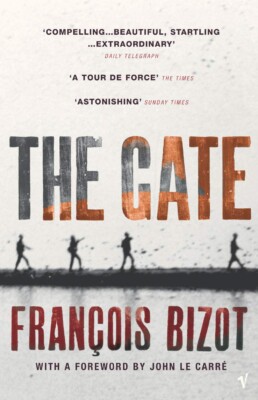
The Gate
Author: François BizotPublisher: VintagePublished: 2004Genre: Non-Fiction, Memoir
FRANÇOIS BIZOT, A FRENCH anthropologist and student of Buddhism, was 25 years old when he arrived in Cambodia in 1965. Drawn to “the mysteries of the Far East”, he soon found contentment, losing himself in the centuries-old rhythms of the Cambodian countryside. Bizot was to find fame, however, as the only westerner ever to survive imprisonment by the murderous Khmer Rouge.
“The land was rich and beautiful, enamelled with paddy fields, dotted with temples,” Bizot writes of the idyll he discovered before his capture. “This was a country of peace and simplicity.”
Having fallen in love with a local woman, Bizot married and had a daughter, and by 1970 the family was living in Srah Srang village, within the Angkor archaeological site close to the northern city of Siem Reap. Communist Viet Cong and Khmer Rouge troops were engaged in a guerrilla war against American and South Vietnamese forces in the area. Bizot, however, played no role and was employed at the Angkor Conservation Office, restoring ceramics and bronzes.
Then, in 1971, while working in the ancient royal capital of Oudong, just to the north of Phnom Penh, the young Frenchman and two Cambodian colleagues were captured by the Khmer Rouge. Accused of being a CIA spy, Bizot was chained to a stake in a jungle camp for three months, starved and regularly interrogated before — surprisingly, miraculously — he was freed.
“I have written this book in a bitterness that knows no limit”
François Bizot
The Gate is Bizot’s memoir of his captivity, and an attempt to come to terms with both his own experiences and the tragedy of the Cambodian genocide, which resulted in the deaths of up to 2 million people, or nearly a quarter of the national population at the time.
As a means of coping with the trauma of the Khmer Rouge period, many Cambodians chose psychologically to bury the horrors of the pasts. Bizot did the same for three decades, and in his foreword to The Gate he writes, “I have written this book in a bitterness that knows no limit.”
While Bizot was held in the jungle, the master of his fate was a zealous communist cadre and former maths teacher, still only in his late 20s, known as Douch, and the two conversed often, disagreeing on everything from Buddhism to the wellbeing of a nine-year-old girl recently brought to the camp. (Her cruel betrayal of Bizot is arguably the most heartbreaking recollection in his memoir.)
Impressed by the Frenchman’s in-depth understanding of Cambodian ways, Douch comes to accept that Bizot is not a spy and so convinces his seniors to release him according to strict revolutionary principles. Bizot’s trials were far from over, however, and the second half of the book deals with the 1975 fall of Phnom Penh and his escape from Cambodia, emotionally traumatised by all he has witnessed.
Bizot did not return to Cambodia until 1988, discovering that Douch had gone on to oversee atrocities committed at Phnom Penh’s notorious S-21 camp at Tuol Sleng, where 17,000 men, women and children were tortured and marked for execution, leaving the Nancy-born scholar “brutally unable to equate the vision of [Tuol Sleng’s] loathsome executioner with the image of my liberator”.
More usually referred to in English as Comrade Duch, and currently serving a life sentence for crimes against humanity [added note: Duch died in 2020, after 10 years in prison], Douch was absolutely committed to the purity of revolution, Bizot argues, and while the Cambodian’s idealism ultimately saved the Frenchman’s life, it also led to mass murder at Tuol Sleng.
If anything is put on trial in The Gate, it is the passionate idealism and unbending utopianism that led people like Douch to believe there was greater good in such evil. “This terrible man,” Bizot writes, “was not duplicitous. All he had were principles and convictions: he was a pure, fervent idealist.” ◉
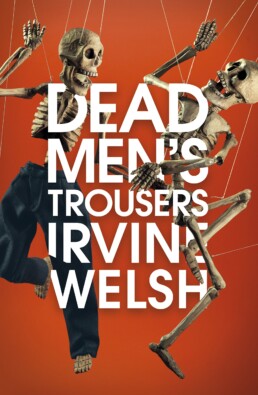
Dead Men's Trousers
Author: Irvine WelshPublisher: Jonathan CapePublished: 2018Genre: Fiction
‘THE DOG ATE IT’ has never been a smart excuse for failing to deliver on an assignment. In Dead Men’s Trousers — the new novel from Irvine Welsh, and which regroups the heroin-addicted Scottish reprobates from his mega-selling debut Trainspotting (1993) — core character Spud’s failure to meet his deadline results in sex-tape blackmail, a grisly form of drug smuggling, YouTube-assisted DIY surgery and death for one of the gang.
It would be wrong to call Dead Men’s Trousers the second Trainspotting sequel after 2002’s Porno. Welsh’s output has long had a “shared universe” aspect, with Renton, Sick Boy, Spud and Begbie variously starring or making cameo appearances in other novels and short-story collections, including The Acid House (1994), Marabou Stork Nightmares (1995), Ecstasy (1996), Filth (1998) and Glue (2001).
Dead Men’s Trousers could, in fact, be seen as an extrapolation of The Blade Artist (2016), Welsh’s zesty but far-fetched thriller in which psychotic Begbie has reinvented himself as Jim Francis, a successful artist now resident in sunny Santa Barbara, California. The new, improved Begbie has a beautiful wife, darling daughters and a penchant for pilates, but his darker side still lurks beneath the perma-tan.
Dead Men’s Trousers covers a year, kicking off in the summer of 2015. Originally from the mean streets of the Edinburgh dockland neighbourhood of Leith, the “boys”, now in their early 50s, are scattered to the winds. But, as the old saying goes: no matter where you run, there you are.
Renton, who ripped off Begbie and his other pals for the proceeds of a drug deal at the end of Trainspotting to escape from his shiftless life of petty crime and self-pity (and occasionally injecting smack into his penis), is now living between Amsterdam and Los Angeles (just down Highway 101 from Santa Barbara).
Managing spoon-fed DJs for a living, heroin-free Renton is now financially sound, though he despairs at life on the road — anonymous hotel rooms, incessant jetlag, strained relationships — and his drugs of choice are now “ching” (cocaine, to keep him going) and the sedative Ambien (to calm him down).
The drama begins where The Blade Artist left off, with Renton cornered by Begbie on a flight to LA. Renton has been in hiding since the end of Porno, when his double-crossed childhood friend was smashed into by a Honda Civic and left “crumpled on the tarmac” after chasing him through the streets of Leith.
Amazingly, the violent sociopath-of-old wants no revenge. Begbie tells Renton that he was better off without drug-deal cash, which he would have blown on booze anyway. (Begbie had always been smack-free, his preferred drugs being alcohol and hurting people; the new Jim Francis sips only mineral water.)
An old friendship is cautiously rekindled.
Sick Boy, meanwhile, is headquartered in London, from which he runs his “sophisticated” escort agency Colleagues. He still fumes over the fact that Renton scammed him a second time, in Porno, trousering £60,000 of ill-gotten cash. Spud … well, poor Spud has not travelled far, and is begging on the streets of Edinburgh.
Renton has dabbled in the 12-step Narcotics Anonymous programme in California, and believes it necessary for his own salvation to make amends (financially, at least) for the betrayal of his friends. With Begbie no longer on his case, he can raise his head above the parapet back in Scotland. The scene is set for the gang’s paths to cross again.
Marketing for Dead Men’s Trousers boldly states that of Renton, Begbie, Sick Boy and Spud, “one will not survive this book”, making it tricky to summarise without unleashing a spoiler to end all spoilers
As in previous books, Welsh employs multiple narrators, with chapters presented from an outsider’s perspective or told by one of the four key characters, employing Scottish dialect and north Edinburgh inflections and slang of varying intensity.
Spud’s lingo is trickiest to decode, though never impenetrable. The first words from the hapless down-and-out in Dead Men’s Trousers are, “A soft Squezy-boatil heartbreak whine leaks ootay the wee gadge. He needs tae git a trim likesay, ye kin barely see they wee sparkly wee eyes through yon fur.”
Spud is talking, of course, of the aforementioned dog (or should that be “dug”?), his West Highland terrier. Though Toto’s role is small in Dead Men’s Trousers, his impact is catastrophic. The mutt’s hunger — and Spud’s ability to make a dog’s dinner of even the simplest of tasks — slams the so far slow-moving tale into a higher gear.
Marketing for Dead Men’s Trousers boldly states that of Renton, Begbie, Sick Boy and Spud, “one will not survive this book”, making it tricky to summarise without unleashing a spoiler to end all spoilers.
Let’s just say that Welsh’s tale is squeezed (“squezed”?) tight with double-dealing, casual drug use, cartoon violence, dysfunctional male bonding and crude misogyny (mainly from Sick Boy), all neatly packaged to be acceptable to middle-class professionals — a substantial chunk of Welsh’s fan base. Then throw in black-market organ harvesting, mid-life crises, dispiriting Tinder hook-ups, revenge fantasies and football.
Dead Men’s Trousers is, after all, a book by Irvine Welsh, and that is its strength and its weakness. It’s all very 1990s, recalling the laddish antics of Loaded magazine and the days when the author could often be seen in the British tabloids, stumbling out of London’s Groucho Club with Blur and Damien Hirst.
It is said, of course, that we all become more like ourselves as we get older, and the protagonists here (with the exception of Spud) are increasingly loathsome people: Sick Boy is shallow and amoral; Begbie is a bullied-as-a-child maniac whose only love is inflicting pain; and scratching the scales of Renton reveals a snake who really should never be trusted.
And there is something unedifying about the Edinburgh-born writer — whom now-defunct urban-style magazine The Face lauded as “the poet laureate of the chemical generation”, and these days is based in sunny Miami — still wearing shock tactics like a punky badge of honour; still trumpeting at the age of 59 (and including in his book jacket bio) that Trainspotting “was rejected from the Man Booker Prize shortlist, allegedly for offending the judges”.
That said, Dead Men’s Trousers is what it says on the tin: Welsh doing what he does best.
The formulaic set pieces, the reheated urban myths and the smutty jokes are all there, and guilty fun. As in Trainspotting, there is an excruciatingly embarrassing moment around a family dinner table, and Renton’s star client, who goes by the name DJ Technonerd (really? Groan), wakes minutes before a gig in Barcelona to discover that somebody has super-glued a dildo to his forehead.
But the most irritating thing about Welsh’s writing — and he’s been doing this since Trainspotting — is his shoehorning into the mouths of his characters his own socio-political opinions. This time around there are cookie-cutter tirades against neoliberalism, the greed of the one per cent, a bleak future when jobs will be taken by robots …
Trainspotting was, of course, made into a 1996 movie and made a global star of Ewan McGregor, who played Renton. Last year’s T2: Trainspotting was loosely based on Porno. If a T3 movie is ever made, one can already see the obligatory hallucination scene: when the lads indulge in the drug DMT (dimethyltryptamine) — a powerful hallucinogenic that is said to bring on a near-death experience — and they are met by friendly “lego dwarfs” and “acid-house garden techno gnomes”.
Back in 1993, Trainspotting the book was lauded for its realism. Nobody could accuse Dead Men’s Trousers of that. Rather it is a pleasing opportunity to live precariously through low-life characters that many of us have grown up (or old) with, and whom Welsh says he has now retired (let’s see). It’s slapstick fun, with gratuitous sex and gut-churning butchery thrown into the mix, and perhaps should not be taken too seriously.
When a tweet pondered last month (February 2018) whether Dead Men’s Trousers might be retitled for the American market, Welsh himself replied, “No doubt some snootier critics will simply refer to it as pants.” ◉
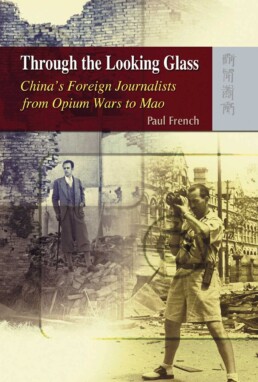
Through the Looking Glass — China’s Foreign Journalists from Opium Wars to Mao
Author: Paul FrenchPublisher: Hong Kong University PressPublished: 2009Genre: Non-Fiction
THROUGH THE LOOKING GLASS spells out what many China-based journalists suspect might be true but never shout about: the glory days of reporting from the country are long gone. The accepted wisdom that the West is obsessed with the Middle Kingdom as never before, author Paul French argues, and that “the China story” in the first decade of the 21st century is sexier than at any time through history, is utter tosh.
The boom time for foreign journalists in China was the late 19th century and first half of the 20th, French says, citing among much other evidence an article published in a Shanghai-based newspaper in 1928. The New York Times back then, the China Weekly Review told its readers, was “running seven or sometimes eight columns of material on China” and sending urgent telegrams to its man on the ground to ramp up his output and meet American demand for news from the country.
China during those tense but thrilling decades was witness to the opium trade, aggressive anti-foreign political movements, the Boxer Rebellion, the collapse of dynastic rule, the birth of a new republic, the rise of warlords, encroachment by imperial Japan, a fledgling communist party fomenting revolution … How can today’s relative stability compete?
Through The Looking Glass, then, looks back on an era when China lured an army of talented scribblers from across the planet, all hoping to cement reputations in an exotic crucible of political intrigue and personal risk. China also attracted more than its share of chancers and adventurers, crooks and dreamers, spies and oddballs, and with new newspapers and magazines in English, French, German and other languages popping up almost weekly in cities such as Shanghai, Beijing and Tianjin, many grabbed the chance to make a buck with the China hack pack.
“Half tomboy and half femme fatale”, Hahn would attend parties with her pet gibbon, Mr Mills, on her shoulder. She became concubine to a Chinese poet and addicted to opium, writing about her experiences for the New Yorker
French intends his chronologically arranged book to be the definitive account of foreign reporting in China and a source of reference for academics as well as the simply curious. That approach means Through The Looking Glass is not always easy going for the casual reader. Though teased along with occasional snippets of quirky trivia (the foreigner-friendly Peking Post’s front page exclaiming on one occasion, “Just Arrived — Cheese”; Hong Kong’s South China Morning Post becoming, in 1916, the only newspaper in the world to be owned by a dentist), the reader must wade through reams of dry facts, figures and dates to get to the juice.
But there is still much of interest within, primarily squeezed from the many personalities, typewriters under their arms, that China seduced. These included characters such as Emily “Mickey” Hahn, who arrived in Shanghai in 1935 and immediately embraced the social whirl. “Half tomboy and half femme fatale”, Hahn would attend parties with her pet gibbon, Mr Mills, on her shoulder. She became concubine to a Chinese poet and addicted to opium, writing about her experiences for the New Yorker.
Then there was Shanghai radio announcer Carroll Alcott — whose broadcasts so angered the Japanese after their 1937 attack on the city that he was forced to wear body armour, carry a pistol and to be always shadowed by two bodyguards to avoid assassination — and The Times’ travel correspondent Peter Fleming, brother of James Bond author Ian. Strangely, Peter likened the northern Chinese town of Chengde, with its grand Tibetan and Mongolian-style temples, to looking something like Windsor, seat of the British royal family.
British poets WH Auden and Christopher Isherwood arrived in China in 1938 as self-proclaimed “amateur war correspondents”. The sybaritic pair adored Shanghai’s decadence, partook of its male brothels and bathhouses, and travelled inland briefly with their compatriot. “Well, we’ve been on a journey with Fleming in China, and now we’re real travellers for ever and ever,” Auden then commented flippantly. “We need never go farther than Brighton again.”
Through The Looking Glass’s pages are packed with tales of such offbeat non-conformists. It is their eccentricities and occasional lunacies, their personal misadventures and derring-do, that provide this meticulously researched book with its most enjoyable moments. ◉
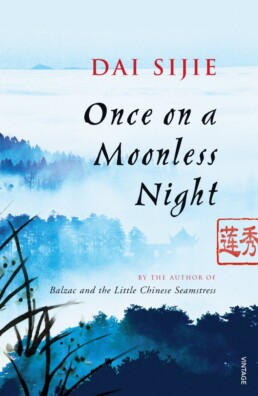
Once on a Moonless Night
Author: Dai SijiePublisher: Vintage BooksPublished: 2009Genre: Fiction
THE NEW NOVEL BY the author of the bestselling Balzac and the Little Chinese Seamstress occasionally recalls Umberto Eco’s The Name of the Rose. Rather than an enigmatic whodunit, however, Dai’s much shorter tale can be seen more as a where-is-it, and it tracks the search for half of an ancient Buddhist scroll.
Once on a Moonless Night is also a convoluted love story, and the object of more than a few of the book’s characters’ ardour is tumchooq, an antiquated Silk Road language said to be exquisite in its simplicity and refinement.
Charming at times, heavy-handed at others, Dai’s tale is narrated by a young French woman who is studying in the Chinese capital Beijing in the late 1970s. It opens with the women employed as the translator of a discussion between a group of Chinese history professors and Bernardo Bertolucci. The celebrated Italian film director is in China making plans for his coming epic The Last Emperor.
At the meeting, the woman meets “the living dictionary of the Forbidden City”, a wizened old man with many incredible stories to tell. And tell he does — of an ancient text, written in tumchooq, the words possibly taken directly from the Buddha’s teachings and inscribed on a silk scroll.
The scholarly gent relates how China’s last emperor Puyi, in an act symbolising his own self-loathing, ripped the scroll in two with his teeth while being flown from his residence in Tianjin to Manchuria by the Japanese in 1932, there to be installed as figurehead ruler of the Japanese puppet state of Manchukuo. Puyi, the man says, ejected the fragments from the plane and only one half was ever recovered. And so the search is on.
Once on a Moonless Night also incorporates — sometimes clumsily — fictionalised accounts of real-life historical figures to illustrate shifts in Chinese political history. As well as Puyi, the Empress Dowager Cixi and Marco Polo make appearances
Like Balzac and the Little Chinese Seamstress, Once on a Moonless Night melds European and Chinese sensibilities to explore cross-cultural relations and personal identity. Born in China in 1954, Dai himself left for France in 1984 and is permanently based in Paris. Both books, as well as Dai’s Mr Muo’s Travelling Couch, were originally written in French.
Once on a Moonless Night also incorporates — sometimes clumsily — fictionalised accounts of real-life historical figures to illustrate shifts in Chinese political history. As well as Puyi, the Empress Dowager Cixi and Marco Polo make appearances, as does Hu Feng, a renowned leftist writer and literary theorist jailed by Mao Zedong for 24 years for not toeing the Chinese Communist Party line.
By chance, at the time of her instruction by the living dictionary, the French woman has recently met the intriguingly named Tumchooq, who works in a Beijing grocery store and who will later become her lover.
The book’s first-person narrative, whereby the woman tells the reader what, for instance, Tumchooq told her in lengthy screeds of his own words, while he is informing her of what another person told him, in many of their own words, makes Once on a Moonless Night a confusing read at times. It is frequently difficult to keep tabs on which character is speaking and to whom, which is ironic considering the Zen-like simplicity of the ancient tumchooq missive once it has been pieced together.
Many extended passages dwelling on the mystical nature of tumchooq — especially those detailing emotionally crushed Hu’s discovery of its healing beauty when it has been introduced to him by Tumchooq’s errant father, a French oriental-languages specialist with whom the leftist is incarcerated in a Sichuan prison camp — are painfully flowery.
And Dai’s reverence for and repetition in explaining Buddhism, while recalling Herman Hesse’s Siddhartha, mean the novel will sit just as comfortably on new-age shelves as on those for fiction.
While these florid and muddling passages make Once on a Moonless Night a challenge, it is also a haunting tale that — whilst twisting historical truth for its dramatic ends — brings 20th-century China to life, placing it in the context of millennia of Eurasian cultural exchange. ◉
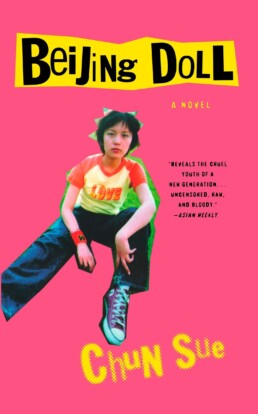
Beijing Doll
Author: Chun SuePublisher: Riverhead BooksPublished: 2004Genre: Fiction
THE MOST ENTERTAINING thing about this readable but ultimately demoralising book is the ludicrous cover blurb. It begins with the product’s main selling point, “Banned in China”, which should attract rebellious teenage buyers in much the same way an “Explicit Lyrics” sticker on an Eminem CD tugs at pimply malcontents the world over.
Beijing Doll is also, or so the blurb gushes, a “candid exploration of a young girl’s sexual awakening” and “cuts a daring path through China’s rock ‘n’ roll subculture”. Yeah, right.
Like Chinese novelist Weihui’s giggle-inducing but bestselling Shanghai Baby, Chun’s English-language debut is promoted as racy, subversive and dangerous. It will sit up-front at Asian-airport bookshops. In truth, Beijing Doll is as controversial and threatening — and every bit as nourishing — as a vacuum-packed, in-flight bread roll.
Beijing Doll is supposedly the true tale of a young life lived on society’s edge. It reads like the slow-moving diary of your average teenage brat. Chun is a self-proclaimed “punk” who hails from Beijing. She could be self-consciously bumbling around and tripping over her shoelaces in Bangkok, Baltimore, Basingstoke or anywhere else in the world.
Like surly, insecure teens everywhere, Chun’s semi-autobiographical protagonist has big issues to consider — what colour to dye her hair, “the difference between grunge and punk”, whether to ride her bicycle or take the bus …
Her teachers are “crashing bores”. She is sensitive while all around her are hard-bitten or vacuous, she tells us. Her parents are for pumping out taxi money and school fees. Anyone would think she personally discovered Converse sneakers.
She gets bedded (don’t expect any raunch) by a few wishy-washy, guitar-playing bad boys along the way. They are bad because they do bad things — they won’t pay her bus fare home, for instance. Honestly, that is about as bad as they get. When day-to-day life gets too heavy, the rebellious teen takes refuge in the corny poetry of rock-band lyrics. She regularly gets “dizzy”, “freaked out” and feels “like puking”. She never, ever stops whining.
Chun’s book — written when the precocious 21-year-old was 17 — is what it is: the tedious recollections of a confused, ever-so-slightly-off-rails but ultimately average teenager
Beijing Doll is pitched as an insight into the youth of a nation in the midst of massive societal changes. The book has been compared to the “scar literature” written by youth sent to the countryside for years to be re-educated by the peasants during the Cultural Revolution. Chun’s character thinks she is hard done by when she has her wrist slapped for reading glossy magazines in class.
If anything, Beijing Doll is an insight into the manipulative machinations of the publishing industry. Chun’s book — written when the precocious 21-year-old was 17 — is what it is: the tedious recollections of a confused, ever-so-slightly-off-rails but ultimately average teenager. Beijing Doll is being marketed, however, as something groundbreaking.
Chun did not choose the title of this book. She wanted “A World of Ice”, she says during a sit-down meeting in Beijing. Her original, mainland-based publisher changed it. We can imagine the thought process: “Hmmm, that Shanghai Baby sold well, so what shall we call this one?” It doesn’t take a genius.
Chun herself admits the English-language version has been censored — and not by the Chinese government. Her version, she says, included a closing paragraph detailing a dream of her parents dying in a fire. The paragraph has gone, and she has no idea why. (Chun still lives with her long-suffering folks in northwest Beijing, by the way, where much of the book is set.)
From the shocking-pink and dayglo-yellow cover — unimaginatively inspired by punk pioneers the Sex Pistols’ Never Mind the Bollocks album cover — to the blurb’s promise of a book that is “raw, uncensored, bloody”, Beijing Doll is an irritating example of cynical packaging taking priority over the prose within.
In the Julien Temple-directed documentary The Filth and the Fury, which charts the rise and fall of the Sex Pistols in the 1970s, there is a scene where singer and frontman Johnny Rotten quits the band at the end of a disastrous American tour. His closing, sneering words to his paying audience: “Ever get the feeling you’ve been cheated?” ◉
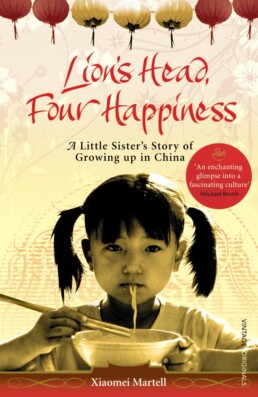
Lion's Head, Four Happiness
Author: Xiaomei MartellPublisher: Vintage BooksPublished: 2009Genre: Non-Fiction, Memoir
WHAT STARTED OUT as a trickle in the early 1990s has become a flood, with Western publishers scrambling to knock out memoirs and semi-autobiographical fiction by mainland Chinese writers, no matter whether their stories are interesting or not. Publish enough Chinese memoirs and, like throwing infinite darts at a dartboard, sooner or later one will strike the bulls-eye. Another bestseller like Zhou Weihui’s Shanghai Baby will be the reward.
Many such memoirs dwell on the hardships of growing up in more austere times, with the Cultural Revolution being the literary catch-all for recent Chinese suffering. Like sex, drugs and rock’n’roll (central to the aforementioned Shanghai Baby, as well as Mian Mian’s Candy and Chun Sue’s Beijing Doll), misery sells. Autobiographical works with grim subtitles — “Memoirs of a Chinese Orphan”, “The Memoir of an Unwanted Chinese Daughter”, “A Chinese Dancer’s Memoir of Her Flight from Inner and Outer Tyranny” — fly from the shelves of Asian airport bookshelves. A “Banned in China” label always helps them along.
Xiaomei Martell’s Lion’s Head, Four Happiness contains no loveless copulating or dabbling in smack, however. There is no suggestion of sedition and any hint of personal suffering is downplayed in favour of fond memories. Rampaging red guards — mentioned only in passing, in respect to the chaotic 1960s and ’70s — were largely avoided by Martell and her family.
Lacking in crises, therefore, her book is the slow if charming recollection of an unremarkable childhood, much of which seems to have been spent eating or preparing to eat.
Martell was born in the Inner Mongolian capital Hohhot in 1964, the year in which China first successfully tested a nuclear device. Arriving 10 years earlier, fellow writer Fan Shen, in his Gang of One: Memoirs of a Red Guard, recounts his complicity in political activities that led to deaths during the Cultural Revolution. Lijia Zhang, also born in 1964 and author of recent release Socialism Is Great!: A Worker’s Memoir of the New China, recalls frustrating teenage years labouring in a Nanjing missile factory producing weapons capable of reaching the US.
Both memoirs convey the otherworldly weirdness of a momentous period in recent Chinese history.
Lion’s Head has no such dramatic hook, and to differentiate her tale from the multitude of others out there Martell has turned to food, detailing the ingredients and tastes of dish after dish that came her way from her birth to the book’s conclusion, when she proudly graduates from university in Beijing.
When held up to Fan’s and Zhang’s more extreme experiences, Martell’s anecdotes about chopping vegetables for runner beans fried with Chinese cabbage and garlic, or of Uncle Deng’s “unbeatable” lion’s head meatballs of the book’s title, might struggle with an audience jaded by the more thrill-packed China memoirs, and perhaps that is a sad admission.
Though Martell’s many descriptions of meals and snacks, of flavours and aromas and recipes, can come across as laboured at times, Lion’s Head is a gentle and nostalgic reminiscence liberally seasoned with quirky cultural asides — mainland Chinese people say the word for aubergine when needing a smile for the camera; phoenix feet (chickens’ feet) are said to cure wrinkles; walnuts are believed to nourish the brain.
Ultimately, while hardcore gastronomes will likely savour Martell’s quirky mix of memories, those preferring political drama to pan-fried jiaozi might need something more substantial. ◉

